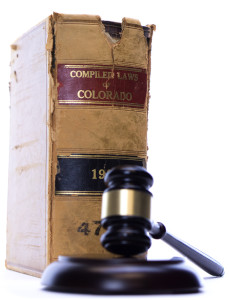Governor Hickenlooper is asking the state Supreme Court to block the ability of state Attorney General Cynthia Coffman to enter lawsuits without the Governor’s permission. If the Governor succeeds in his plan, he will consolidate power in his office at the expense of the independently elected state Attorney General.
The state court should reject the Governor’s plea for intervention, a plea that is more political than legal in its arguments for court intervention. If the Governor wins his gamble, the real losers are the people of Colorado.
There is far more at stake in this dispute than Colorado’s participation in the 27-state lawsuit against the EPA’s “Clean Power Plan.” If the elected Attorney General cannot have a legal opinion different from the Governor on a federal regulatory issue, that office might as well be filled by appointment. That is the logical progression from the Governor’s attempted amputation of the Attorney General’s independent legal authority, and it is absurd on its face.
There is ample legal and historical precedent for the Attorney General’s participation in a lawsuit without the Governor’s assent. In a 2003 case, Salazar v. Davidson, the Colorado Supreme Court held that the state constitution granted the Attorney General independent authority to bring lawsuits on behalf of the State despite the Governor’s objection. In 2003, Republican Governor Owens made the same arguments Democrat Governor Hickenlooper is making today, and he lost. The Governor also seems to have forgotten that in 2010, AG John Suthers joined 24 other states in an historic federal lawsuit against Obamacare that went all the way to the U.S. Supreme Court. Can anyone imagine that AG John Suthers asked Gov. Bill Ritter’s permission to join that lawsuit?
The Governor’s assertion that AG Coffman is acting on partisan motives is oddly ironic. Has the Governor not read liberal Harvard Law School Professor Lawrence Tribe’s March 2015 congressional testimony saying the EPA’s carbon emission rules are illegal and unconstitutional? And hasn’t he noticed that two of the other state Attorney General plaintiffs joining Coffman in the lawsuit – in Missouri and Kentucky– are Democrats?
The multi-state lawsuit AG Coffman has joined is not about politics, it is about unlawful regulatory overreach. It does not challenge the goals of the “Clean Power Plan,” it challenges EPA’s authority to impose that plan without congressional authorization.
This question goes to the very heart of the rule of law: regulatory agencies like the EPA can only make rules within the framework of laws enacted by Congress, and when they go beyond that, they are acting unlawfully. There is nothing “partisan” about that issue.

The independent authority vested in the Attorney General plays an important role in the functioning of Colorado’s state government by ensuring a check-and-balance on the Governor’s “supreme” authority. The Governor is our chief executive officer, not our king, and both our public health and our environment are better served by the rule of law over the rule of good intentions.
If the 27 state plaintiffs win the lawsuit and the EPA is told by the US Supreme Court to stand down, Colorado is a winner, not a loser. That is because Colorado could still proceed to implement those same EPA goals — but only if it is a Colorado decision, not a Washington top-down mandate. Colorado could then choose carbon emission reduction goals on its own timetable — with appropriate reviews and safeguards adopted by Colorado’s elected representatives, not unaccountable federal bureaucrats.
Our Attorney General has chosen to stand up for the constitutional separation of powers and Colorado’s sovereignty, while our Governor chooses to be a cheerleader for the EPA’s very costly and legally dubious mandates.
It shouldn’t be hard to choose sides on this one.
Cadman represents Colorado State Senate District 12. As Senate President, he represents the voice of the Colorado Senate Republican Caucus.


